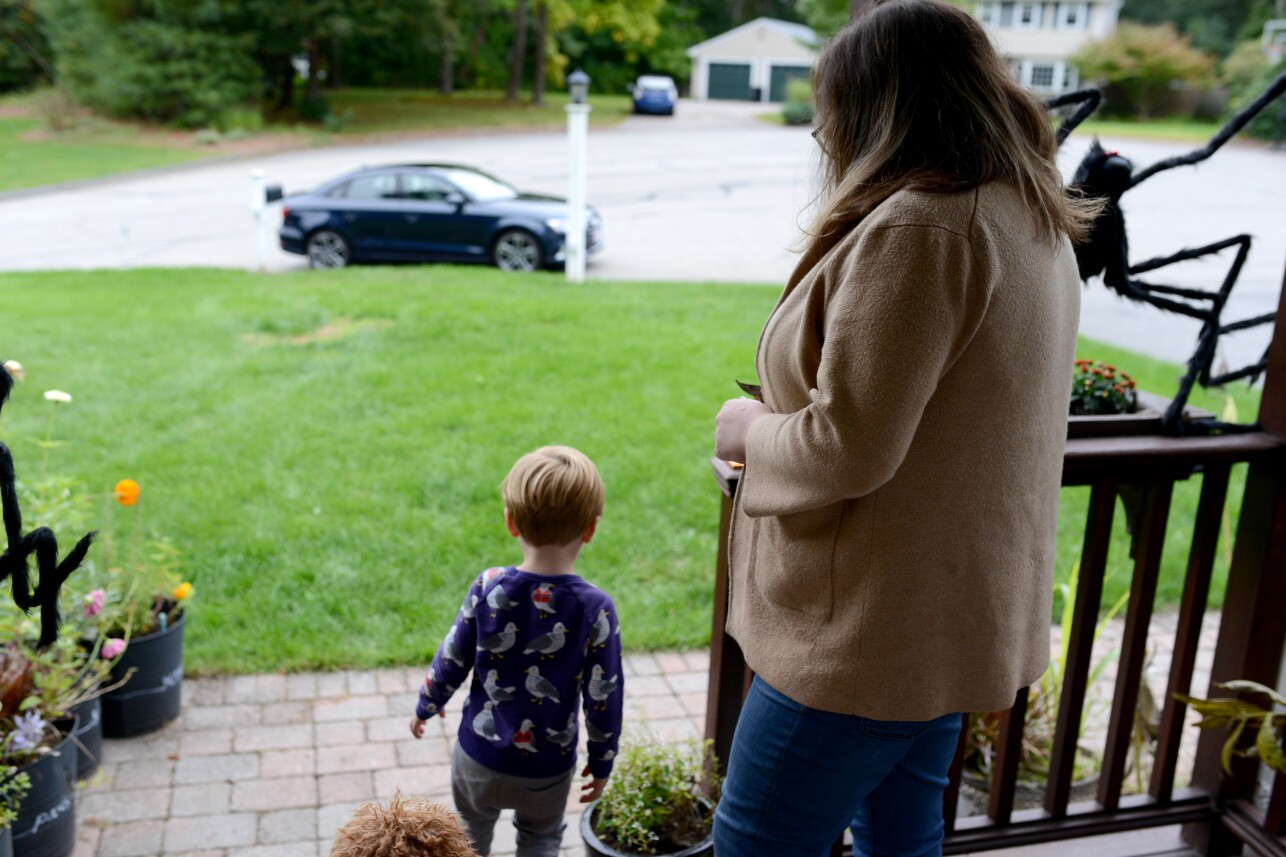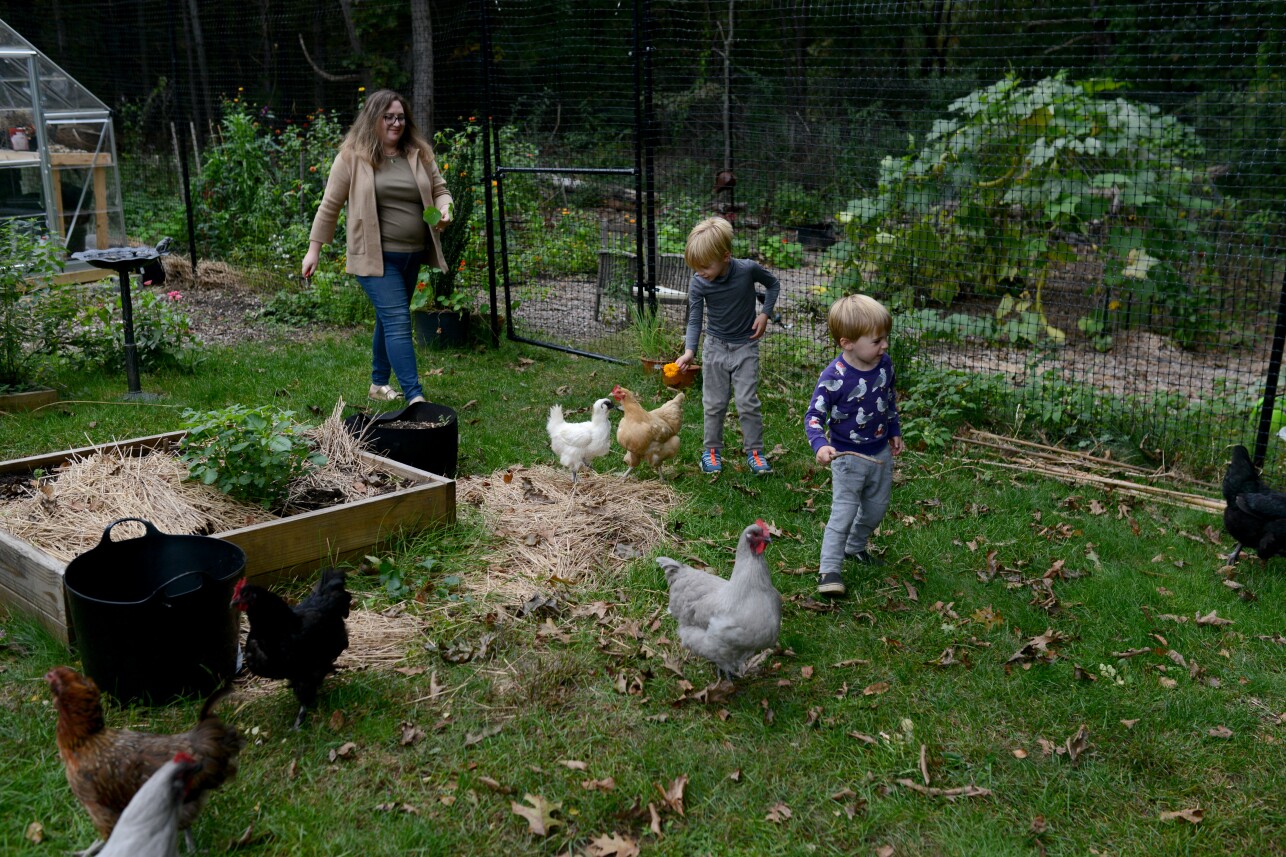After more than a year at home with a newborn and toddler, Jess Robison wanted to move beyond part-time freelance gigs and get back to full-time work. A digital product designer, she ruled out opportunities in Boston and Cambridge, the heart of the region’s tech industry, because of the long and often unpredictable commute to and from her home in Acton.
“If you wanted to work at one of the big tech companies, you had to be in person,” she recalled. “They wanted butts in seats.”
Daily commuting time would eat into family time, so Robison limited her search to nearby suburbs and, in November 2019, had found a job fairly close to home. The commute was okay, but the job wasn’t a great fit.
Watch Jess Robison’s story:
“Pretty quickly after taking the new job, I realized that it wasn’t the subject matter that I cared about,” she recalled. “I didn’t hate my job. I just wanted to work in something different.”
Then COVID hit and Robison, 36, worried about the uncertainty in the economy, stayed. Her job had switched to being fully remote and, while she valued the flexibility, she also longed for different challenges and the opportunity to return to the office.
More Local News
When she finally did start job hunting again, in 2021, the landscape had changed completely. Companies, including some of the biggest names in tech, promised employees they could work from home forever. There was also another option on the table and, for Robison, it was ideal: hybrid work. She could spend some days working from home, and others in the office connecting in-person with colleagues.
“I think the pandemic changed the options for someone like me looking for a job, because, now, it wasn’t like finding that partially remote job was a needle in a haystack,” she said.
The nature of remote work has also changed, she said, and no longer meant settling for less pay or less interesting work. “Now I can work on really anything, and every company is doing it.”

Robison quit the job she didn’t hate but didn’t love in May, and because her commute would be limited to just a few days a week, expanded her search to the city.
She now works in Cambridge at Tamr, a software company, where Chief Product Officer Anthony Deighton predicts the shift to hybrid work will be permanent.
“We've taken five years of digital technologies affecting work and pulled them up and done them in months,” Deighton said, citing the widespread use of video conferencing and document-sharing tools. “People just accelerated their adoption of these technologies in a really impressive way.”
"The pandemic changed the options for someone like me looking for a job, because, now, it wasn't like finding that partially remote job was a needle in a haystack."Jess Robison
Certain kinds of collaboration are better done in person, he said, but the pandemic proved that workers can also be efficient accomplishing other tasks on their own timetable. The 9-to-5 workday has broken wide open: some workers answer emails late at night or take calls at the break of dawn, but also have the freedom in the middle of the day to go to a doctor’s appointment or pick up a child from school.
“That creates more net output for the employee, both in their personal and professional lives,” he said.
But not every company can so easily pivot to a new work paradigm. For some, “it’s like turning the Titanic,” said Michelle Keefe, CEO of MomUp, a firm that specializes in connecting mothers to job opportunities.
“A lot of companies are nervous about remote work and disrupting corporate culture,” she said, pointing out that the challenge is “how to maintain high standards while also giving breathing room people need to just live balanced lifestyles.”
Robison calls the rise in acceptance and availability of hybrid work in her field “a shining light that came out of the pandemic.”

But she’s quick to add a caveat: not everyone balancing young kids and careers is basking in that same light. Accessing and affording child care has become increasingly challenging, and while remote work may seem ubiquitous to some, according to the Bureau of Labor Statistics, during the month of August only 13% of workers were working remotely specifically due to the pandemic.
Robison is hopeful that the long months of COVID — when schools were shut down and parents had to figure out how to juggle the demands of children and work from home — will have a lasting impact on workplace culture.
“Suddenly, executives had kids running around in the background, it wasn’t just people at my level, and so I think it really opened up the possibility that anyone could work at any level while parenting,” she said. “You got a real flavor for what life was like for everyone. And I think, through that, came a lot of empathy.”
Find The Big Quit stories at GBHNews.org, on the GBH NewsInstagram page, GBH radio (89.7 FM) and Greater Boston (GBH2 television). Have a Big Quit to share with GBH News? Fill out the form below or call us at 617-300-2004. We may feature your Big Quit story.









